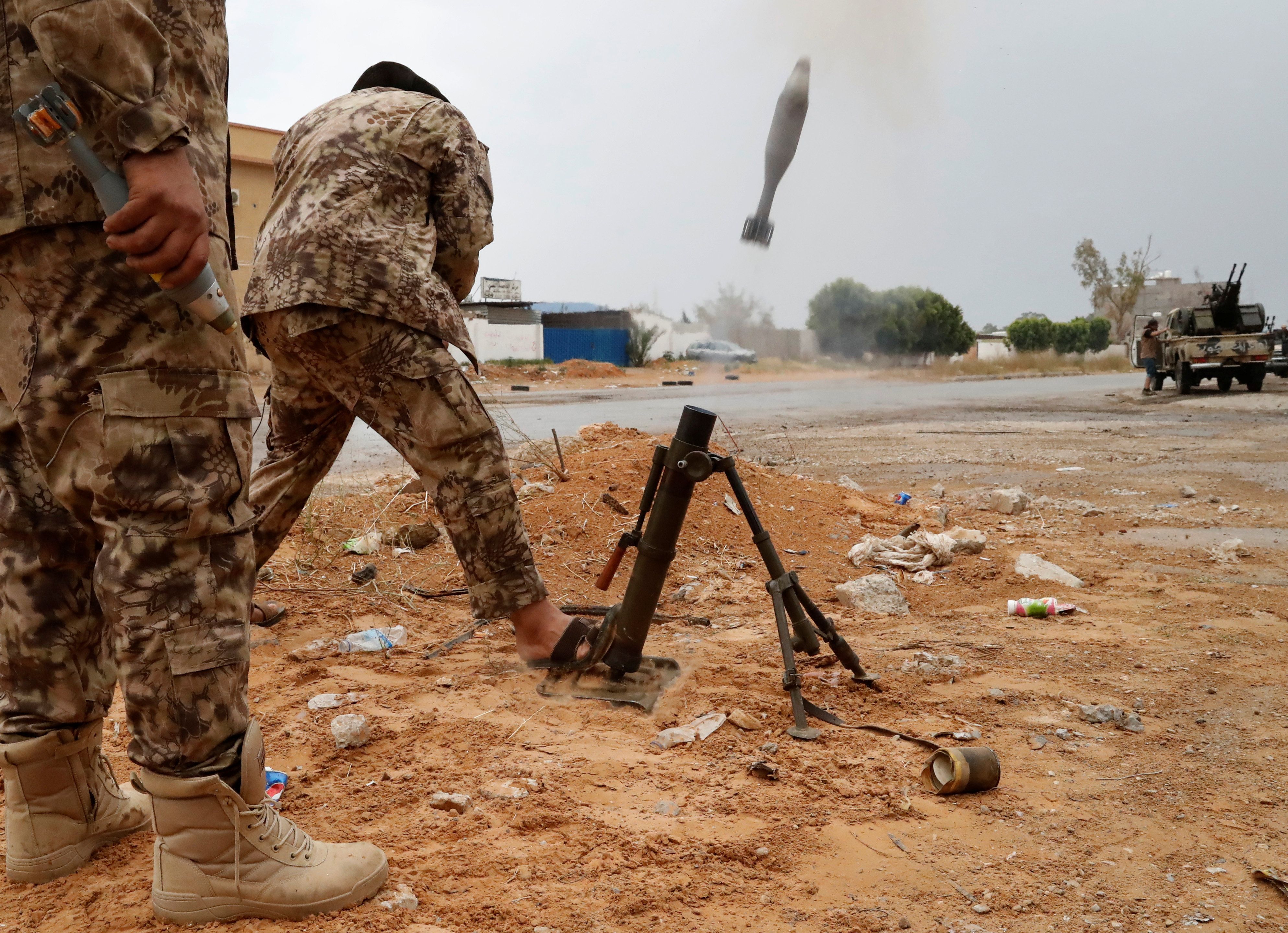The potential for renewed political and ethnic violence in Kashmir may be the most important news today, but there are several other places where war is already raging. In honor of one of the great works of 20th century political and military history, Barbara Tuchman's TheGuns of August, here's a quick look at some of the worst, or most intractable, conflicts in the world today.
Yemen – The five-year-old war between Iran-backed Houthi rebels and government forces backed by Saudi Arabia (with help from the US) has created the world's worst humanitarian crisis. Despite recent steps towards peace, this conflict — a major flashpoint in the Iran-Saudi rivalry—threatens to spill beyond Yemen's borders as Houthis step up rocket attacks on Saudi Arabia.
Syria – A conflict that began with protests against Bashir al Assad's government in 2011 has killed about 400,000 people, driven 5.6 million from the country, and made internal refugees of another 6 million. Assad, with support from Russia and Iran, has won the war. But repeated attacks on Idlib Province, the last rebel stronghold, continues to kill civilians, including children. The United States, Turkey, Saudi Arabia, Israel, al Qaeda, and various militia groups have all been directly or indirectly involved in the fighting.
Libya – Since the death of Muammar Qaddafi in 2011, Libya has descended into civil war. A UN-recognized Government of National Accord rules in Tripoli. A rival government led by General Khalifa Haftar controls much of the country's east. Each side controls oil fields within its territory, and each has its own central bank. Haftar's bid to capture Tripoli has (so far) failed, but it has killed more than 1,000 people, including more than 100 civilians, since April. The UN estimates that 1.3 million people need urgent humanitarian help.
Ukraine – Ukrainian forces and Russia-backed separatists have fought to a stalemate in the eastern Ukrainian provinces of Donetsk and Luhansk. Fighting has killed more than 10,000 people. Moscow has used the conflict to try to pressure Ukraine's government into a rewrite of its constitution that would give regional governors in these provinces—and therefore Moscow—veto power over Ukraine's national foreign and trade policies. Russia's intervention has blocked some moves by Ukraine to move toward the EU and NATO, but has not returned Ukraine to Russia's orbit. Despite a recent ceasefire, sporadic fighting continues.
Democratic Republic of Congo – The victory of opposition candidate Felix Tshisekedi in presidential elections last year sparked hopes of a path to end a quarter century of violence that has displaced 4.5 million people. But over one hundred armed groups continue to wreak havoc in the eastern part of the country in a conflict fueled by access to the country's lucrative mineral reserves. Meanwhile, the DRC struggles with a year-old Ebola outbreak that has been declared a Global Health Emergency.
Afghanistan –The longest war in US history continues, 18 years after Washington first sent troops to crush the Taliban, who still control much of the country. Hundreds of civilians are still losing their lives every month. Amid fresh peace talks, Washington is currently trying to convince the Taliban to engage directly with the enfeebled Kabul government, something the militants have thus far refused to do. The Trump administration wants out — but can Washington broker something that achieves that objective without giving away too much?
